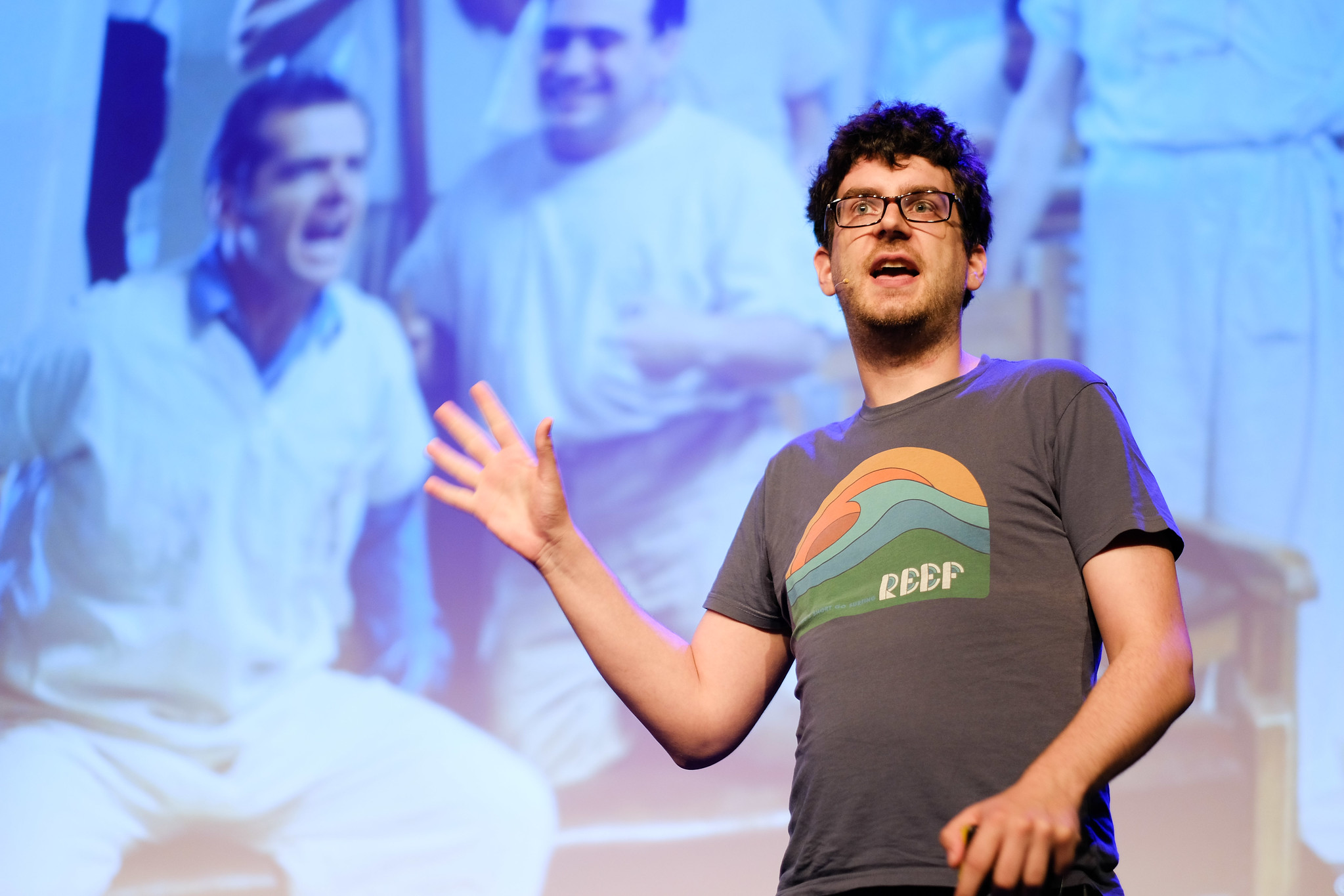Talks
Towards re-decentralizing the Web: an ethical web and data infrastructure
Oxford Martin School

The Web was once for everyone. Thirty years ago, the Web was launched as an open, common, universal infrastructure that anyone with a computer and a modem could use to communicate, publish and access information. In recent years, however, it has radically diverged from the values upon which it was founded.
The medium that was designed to bring together the world’s information and support a plurality of voices—
In this talk, Prof Ruben Verborgh, Visiting Fellow of the Oxford Martin Programme on Ethical Web and Data Architectures, will be joined by Prof Sir Tim Berners-Lee and Prof Sir Nigel Shadbolt, to discuss how new forms of technical and legal infrastructure are being developed and deployed to provide a more equitable and ethical treatment of individual users in the age of AI. They will outline the challenges of achieving better data autonomy, providing individuals with better rights to data privacy while enabling them to benefit from the exciting possibilities of digital innovations.
Connecting people, data, and apps without centralization
Connected Data London
Big Data has transformed the world big time. It led many companies to strongly focus on data analytics, trying to collect and control gigantic amounts of data. After years in the rat race, several of them are slowly realizing that the continuous striving for having more data than others is maybe not the most meaningful business objective for everyone.
In fact, the data collection craze is steadily killing innovation. In this talk, I will discuss post-Big Data thinking in which data is controlled again by people, outlining the goals and ambitions of the Solid project.
One flew over the cuckoo’s nest
EuropeanaTech

With expertise in decentralisation, hypermedia clients, Web APIs and Linked Data, Ruben Verborgh is currently collaborating with Tim Berners-Lee on re-decentralising the web. Under the title One flew over the cuckoo’s nest, he will address the role of aggregation on a decentralised web.
Talk to any librarian, archivist, or museum curator and you will find they have one thing in common: an unconditional love for the metadata they produce. Like parents raising a child and birds hatching an egg, eventually the time comes when our younglings think they’re ready to spread their wings and fly into the unknown. Is it our destiny to prepare them for this flight and then disappear, or should we remain a safe haven to which they always can return? The story of decentralization versus aggregation ultimately revolves around the tension between control and trust, between holding on and letting go. In his keynote, Ruben will explain that, instead of making that choice, we rather need to strive for achieving the best of both worlds. Decentralization and aggregation go hand in hand—
The delicate dance of decentralization and aggregation
ELAG Conference

Nowadays we are used to data being dispersed in different locations, formats and environments. We reference data, linking and blending them to be useful to our users. We started re-using data by harvesting OAI repositories and we ended up copying everything as-is instead of blending data using standard web protocols. The vision is that merging distributed data using web services (microservices) will enable us to better blend and re-use data. Yet, we are still living in a world of monolithic data structures; we need to go forward and try to use standard web data-formats and reconsider library data description rules in light of this. On the other hand, we are faced with monolithic legacy systems which, though moving to the cloud, are pretty hard to ‘deconstruct’. Here we should deblend as well. Our local IT infrastructure is also moving to a blended environment where web services and enterprise service buses are supposed to orchestrate a universal information environment. It is not an easy task to use the existing library systems in this kind of environment.
Ruben Verborgh, professor of Semantic Web technology at Ghent University, will open the Conference.
The future is federated
VIVO Conference
For years, scholars, scientists, and practitioners in various fields have been told about the importance of open data. Increasingly, many of us have been asked to publish Linked Data as well. While the publication of Linked Data becomes easier—
Linked happily ever after
European Organization for Nuclear Research (CERN)
Linked Data has become an inevitable reality for many libraries. And that is a good thing, because it enables data integration at a scale that was not possible before. At the same time, it also comes with many challenges. What are the “good” ways of doing Linked Data? How can we do it efficiently, at a reasonable cost? And of course: how can we ensure that the efforts we do today pay off in the future? This last question is the main focus of this talk. I will explain what sustainability means in the context of Linked Data, and on which constants we can rely within an ever changing technological landscape. Expect a mix of vision and concrete advice, but mostly solid, down-to-earth discussions on what Linked Data will mean for libraries now and in the future.
The talk will be followed by a panel discussion with:
- Beat Estermann, deputy head of the research unit Linked & Open Data at the E-Government Institute of the Bern University of Applied Sciences
- René Schneider, Professor for Information Science, Haute Ecole de Gestion, Geneva
The talk is part of the series of Library Science Talks
jointly organized by the Zentralbibliothek Zurich, CERN and the Association of International Librarians and Information Specialists (AILIS).
![[Profile picture of Ruben Verborgh]](/images/ruben.jpg)